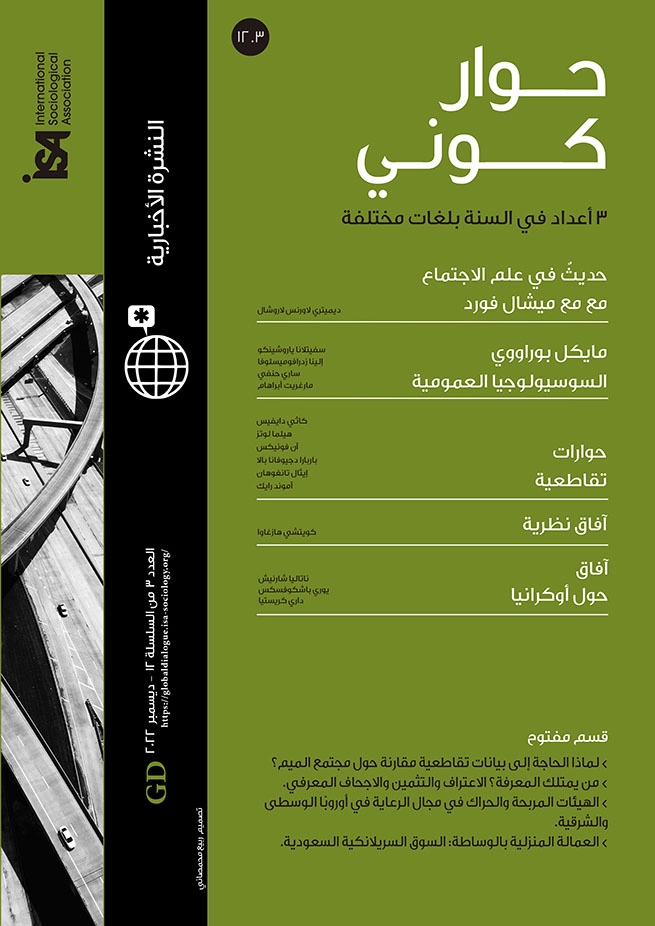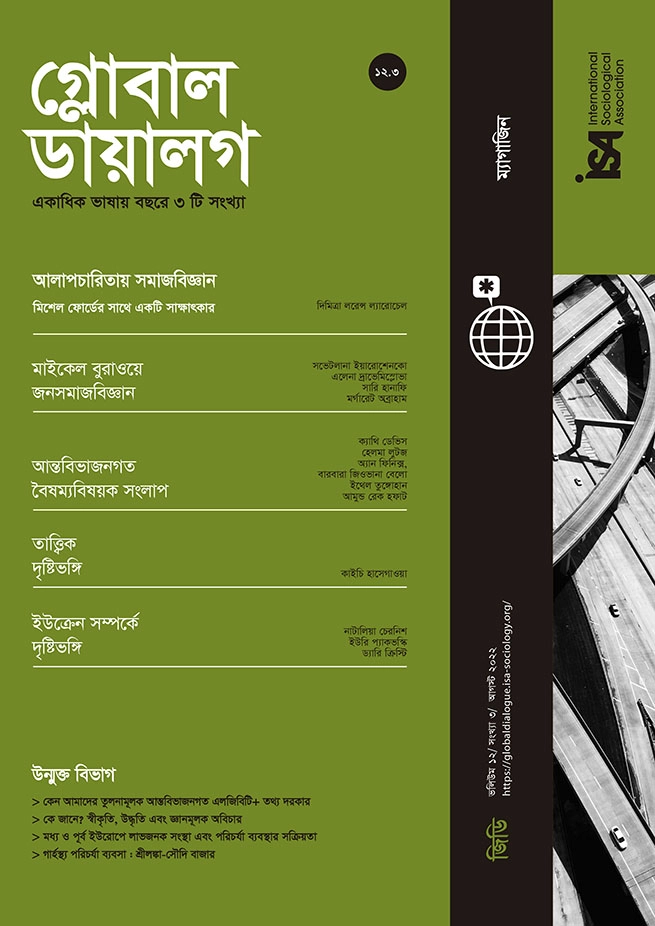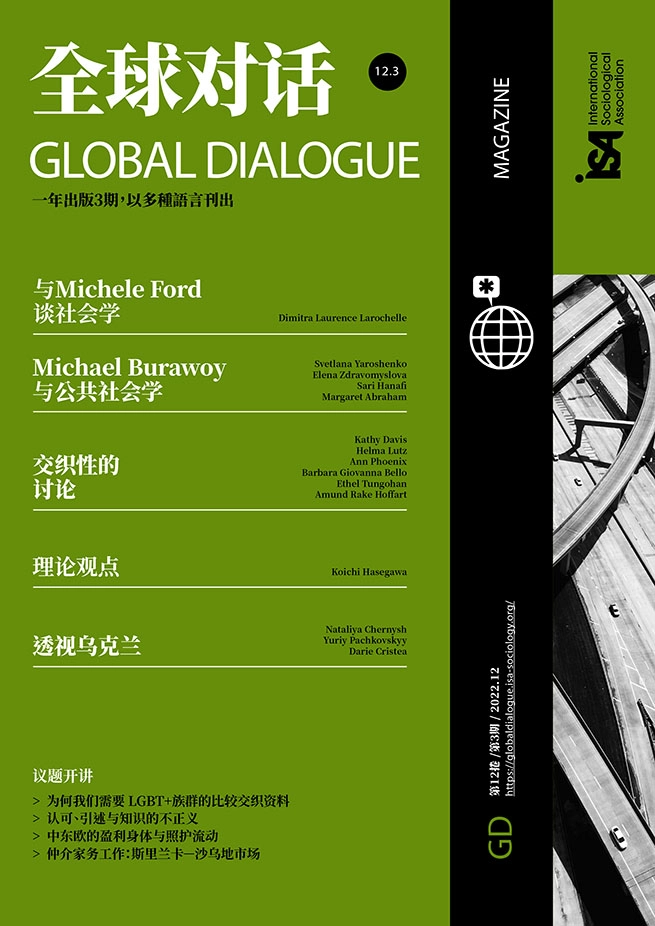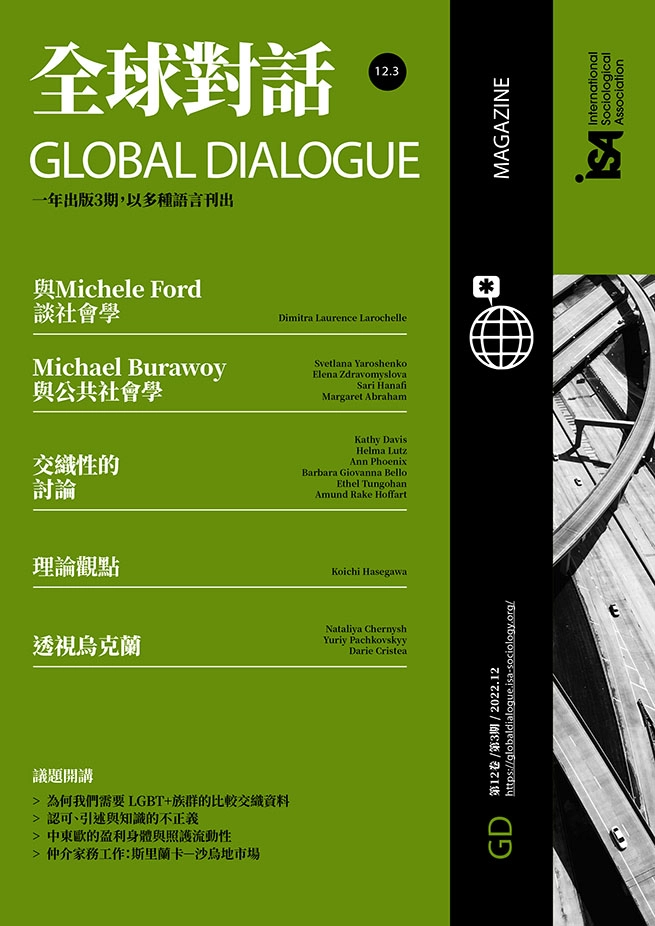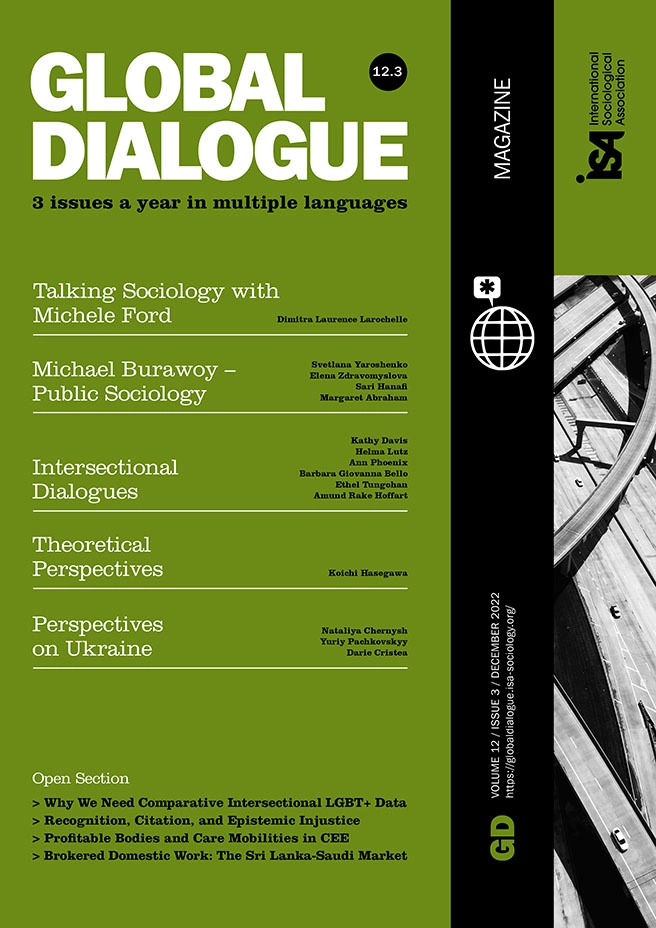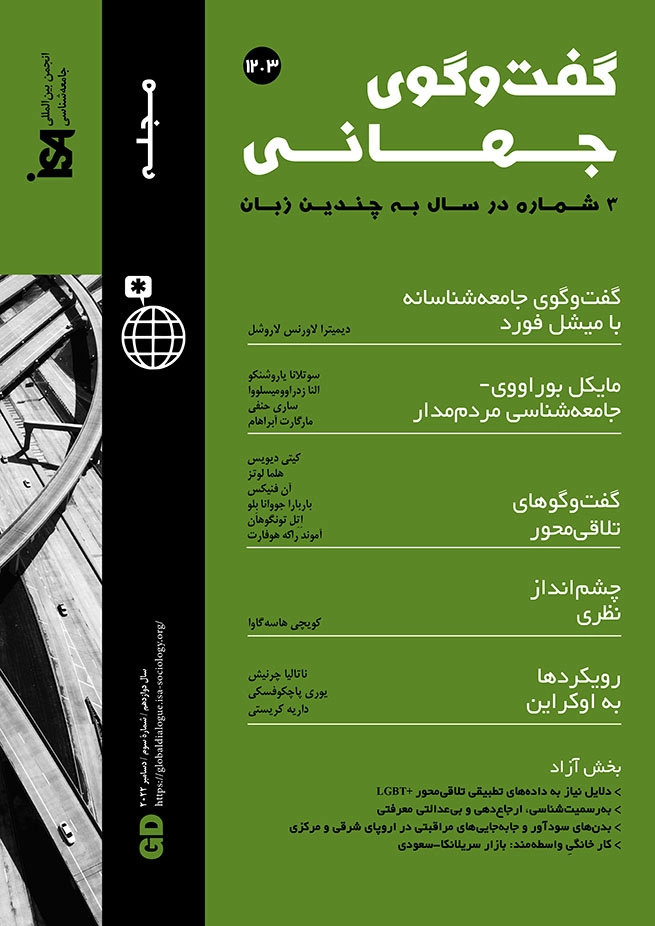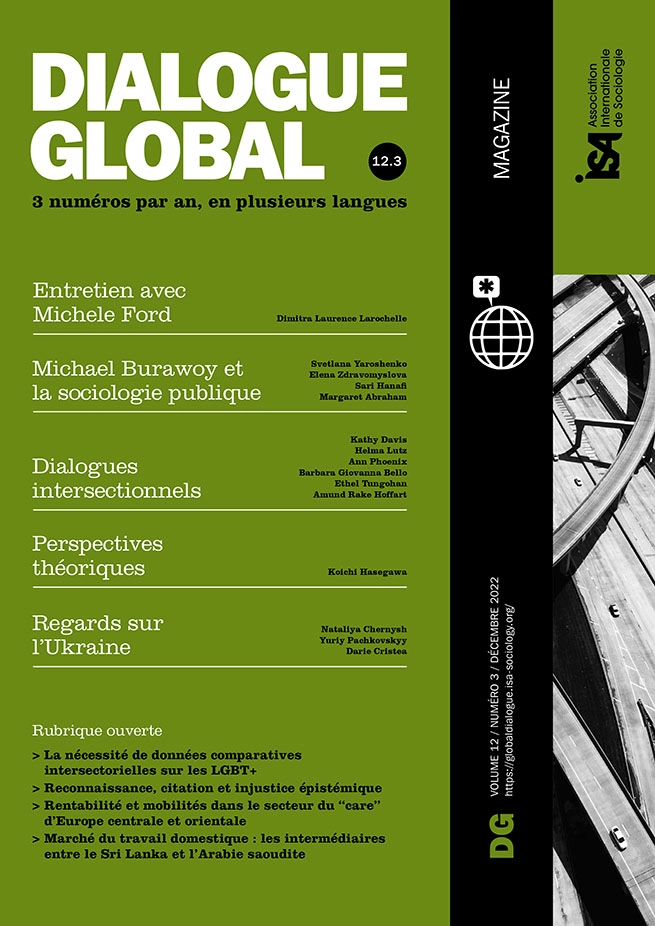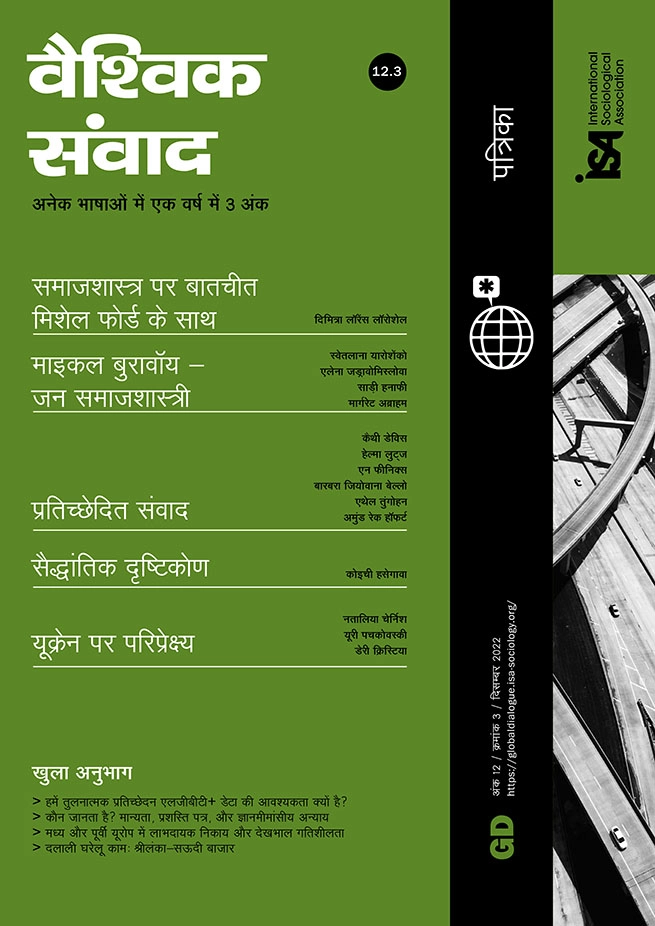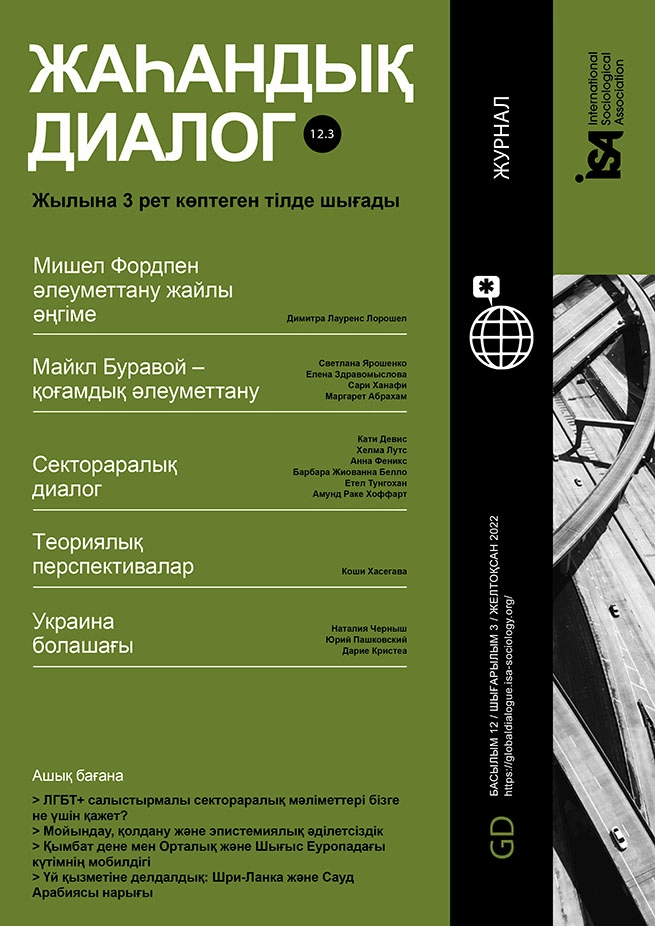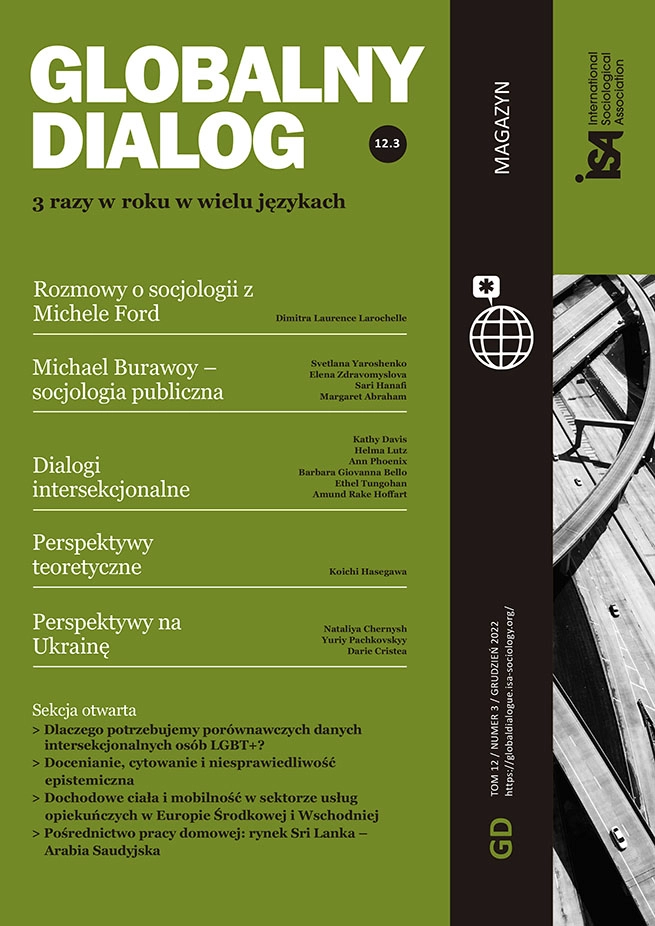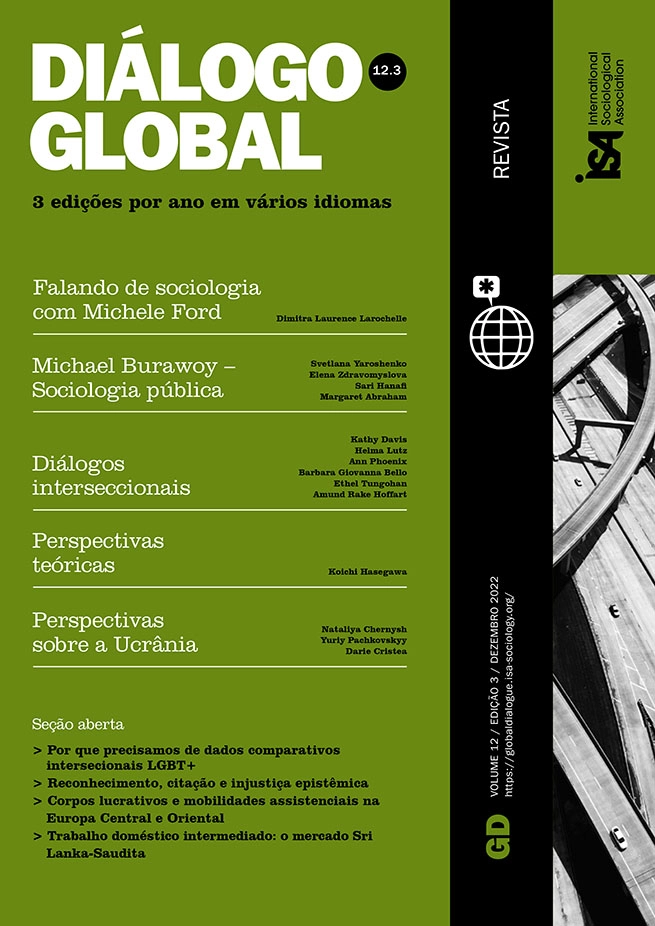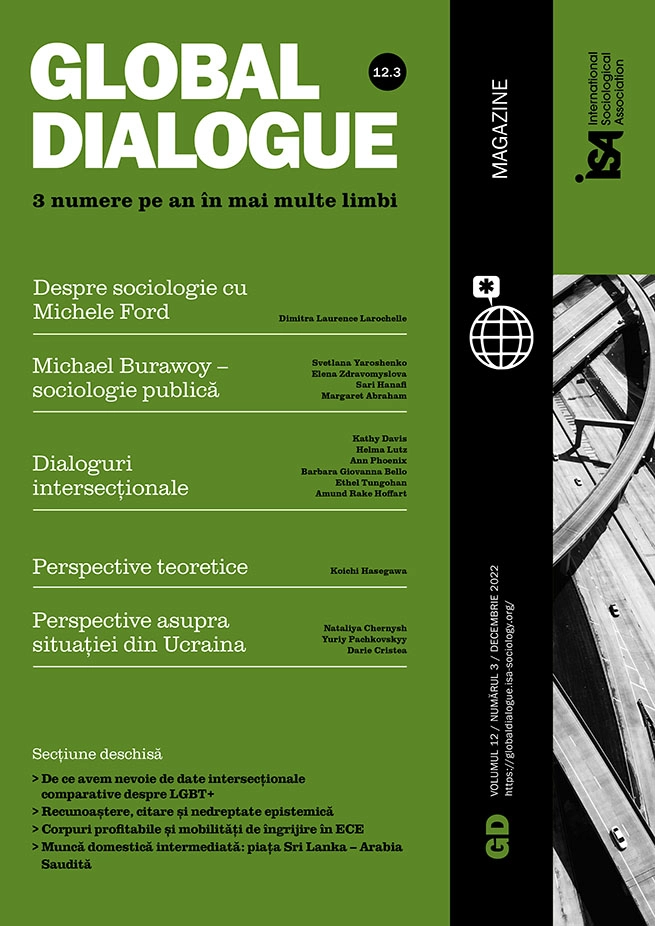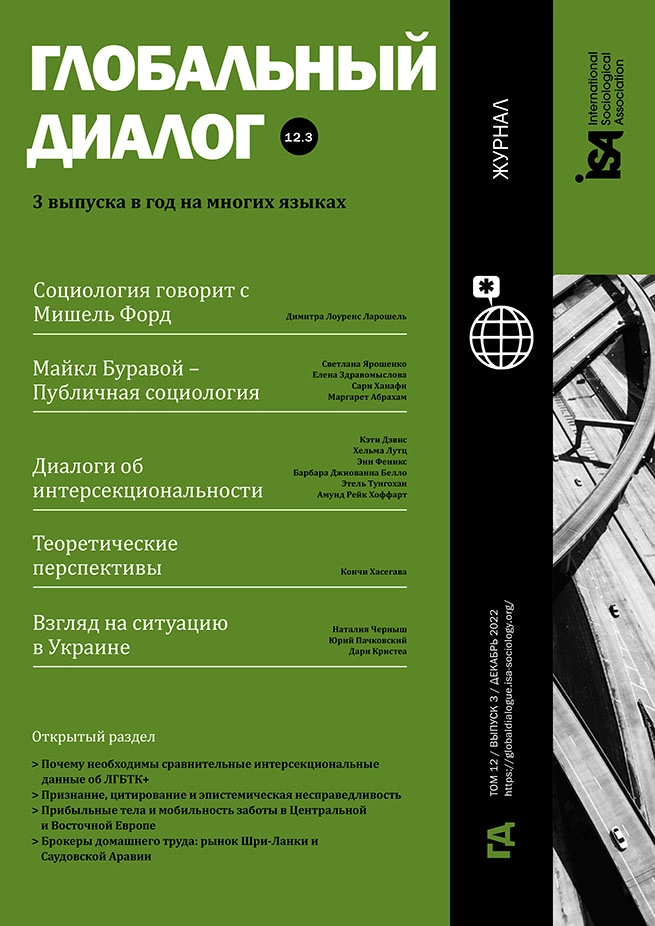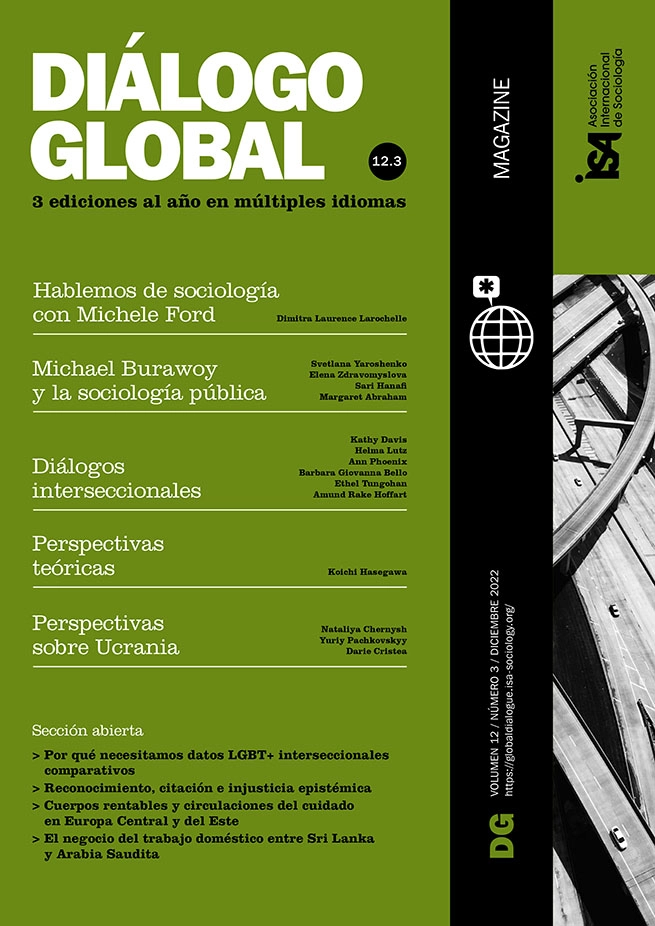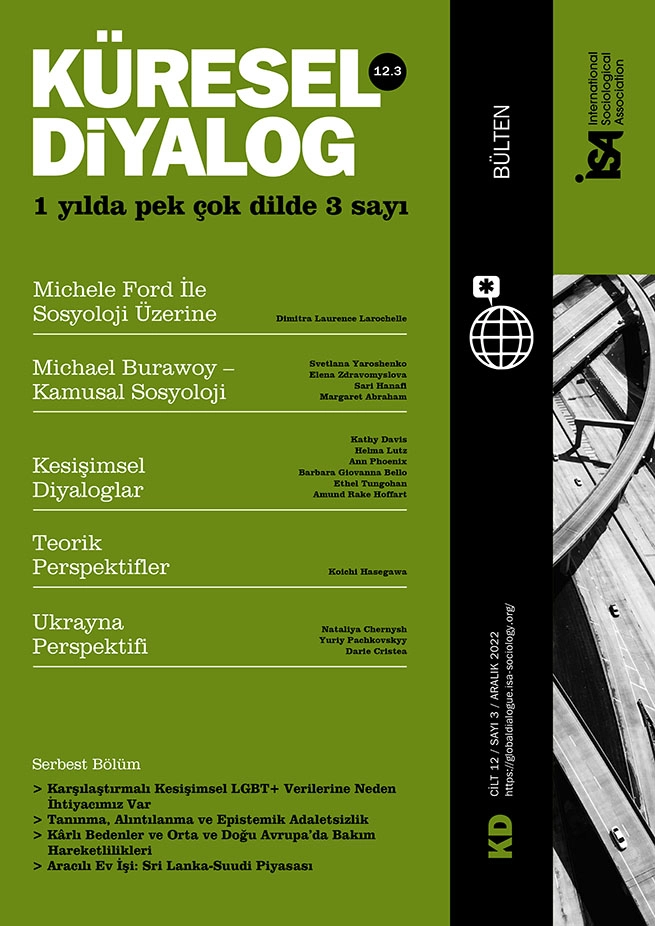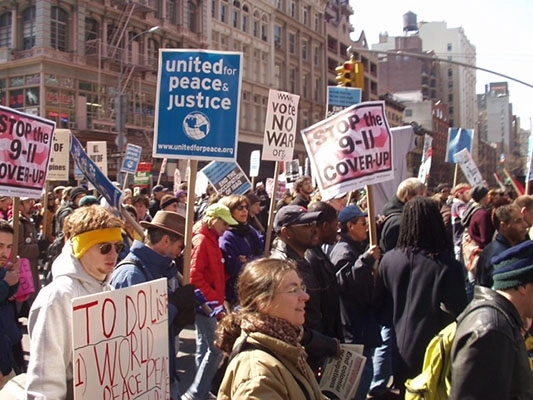Read more about Michael Burawoy – Public Sociology
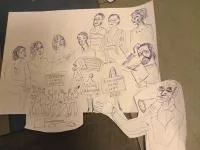
Public Sociology in the Russian Context
by Svetlana Yaroshenko and Elena Zdravomyslova
Pushing Public Sociology Toward Dialogical Sociology
by Sari Hanafi
October 06, 2022
Across the world, sociologists, social scientists, researcher–activists, feminists, and people of color have had a long history of linking research and action, and of engaging with publics. This includes addressing issues of inequality, apartheid, exploitation, oppression, alienation, wars, racism, colonialism, capitalism, democracy, gender-based violence, and movements for social justice and social change.
In the United States, the history of sociological engagement with publics has often been erased or relegated to the margins in the sociological canon. While the classical theorists Marx, Weber, and Durkheim were rightfully a part of the Western pantheon, pioneering sociologists, social researchers, and activists – notably W.E.B. Du Bois, Harriet Martineau, Jane Addams, Anna Julia Cooper, Ida B. Wells-Barnett, and Marianne Weber – remained relatively invisible until quite recently. Historically, the pillars of power and privilege, systems of knowledge production, distribution, and consumption have played a pivotal role in creating and contouring the canon in ways that suited sociology’s central theoretical and methodological professional domain which was predominantly Western, White, and male. The result has been the exclusion/minimization of the theoretical knowledge and methodological contributions of important sociologists engaged with publics, doing sociology, and working outside the canon.
In 2004, Michael Burawoy, through his American Sociological Association (ASA) presidential address (re)popularized the term public sociology in the US. Delineating the types of sociological knowledge (public, professional, policy, and critical) and defining public sociology as an impetus for doing sociologies which promote and protect all social relations that make people human, he invigorated discussions and debates on the purpose of the discipline. For me, a feminist action researcher, a sociologist at the margins, actively engaged since the 1990s in shifting domestic violence from being a private problem to a public issue, the 2004 annual meeting was one of the most sociologically engaging and publicly inclusive conferences that the ASA had put together. Although acutely aware of the profound contributions of American sociologists to sociological engagement with publics, as well as those of associations such as the Society for the Study of Social Problems and Sociologists for Women in Society, Burawoy’s presentation and call to public sociology resonated! It challenged the professional myopia and called into question sociology’s knowledge: for whom and for what?
For Burawoy, sociology is a catalyst for social change. At its core, this is a deeply humanistic sociology that seeks to contribute meaningfully to a better world where there will be less socially produced suffering. This in turn entails a sociology that grapples with the real-world problems of social exclusion, vast inequalities of wealth and opportunity, commodification, and a market-centric world. Sociology’s major mission is to proactively join in the battle to protect society from the ravages wreaked by market fundamentalism. Burawoy seeks a public sociology paradigm that builds alliances with and enlists the support of civil organizations and social movements, while also emphasizing students as an important public. Sociology cannot be restricted to activist, pragmatic impulses alone, but must be equally concerned with values to better comprehend the human, social world. Sociology must put at the forefront of its analysis not only instrumental knowledge of means but also “reflexive knowledge” about ends. Public sociology should contribute to a public dialogue about values and goals as well as the possibility of their realization. It entails the “organic interdependence” in which the flourishing of each type of knowledge – public, professional, policy, and critical – depends on the flourishing of all.
Burawoy’s essays written between 2004 and 2014 present the development of his work as a movement from public sociology to global sociology. Together, these provide the trajectory that started by naming and challenging the hegemony of professional sociology in the US and moved on to a more critical understanding and engagement with the global challenges posed by an unequal world. Advocating for a global sociology with strong underpinnings in the local and national systems of knowledge, Burawoy is acutely conscious of the hegemonic hold of the Global North on knowledge production, warning against the positivist dream of unification of the social sciences because that would inevitably be controlled by the powerful, thereby running the risk of the West “advancing the interests of a new imperialism.” Instead, he expounds an alternative project that envisages stitching together national sociologies into regional associations which then lead to dialogue and the ultimate synthesis of global sociologies. Global Dialogue, his International Sociological Association project, was one avenue for international sociological dialogue and debate across the globe on a spectrum of contemporary issues.
On reading Burawoy’ s recent book Public Sociology: Between Utopia and Anti-Utopia, published almost two decades after his 2004 ASA presidential address and nearly a decade after his 2014 ISA presidential address, what comes to mind is how he continues to be persistent, passionate, and persuasive about the pitfalls and promise of sociology. C.W. Mills’ view that sociology lies at the intersection of biography and history comes to the fore; but also, albeit unintendedly, so does the importance of the feminist phrase that the “personal is political.” More explicit is the commitment to and critique of Marxism and the highlighting of the profound sociological contributions of W.E.B. Du Bois in connecting sociology and social transformation. Burawoy carefully connects and intersects his own experiences with his analysis of public, professional, policy, and critical sociology. Intertwining biography with history, his sociological sojourns across the world show that lived experiences are an integral part of the sociological imagination. This memoir follows his explicit, nuanced, and personal journey as a sociologist, student, researcher, teacher, administrator, friend, collaborator, activist, and professional association leader continuously committed to reflecting and (re)situating sociology to meet the disciplinary and societal challenges of our time. It is here that he interrogates, extrapolates, and expounds the risks and relevance of sociology.
Today, as we confront the impact of a global pandemic, the rise of authoritarianism, the growth of religious fundamentalism, and the explosion of fake news, social media, and consumption of mega misinformation by manipulable publics often aligned against the common good, we are once again compelled to consider what it will take to fulfill the promise of sociology. Perhaps hope lies in a new generation of sociologists and activists, examining history, advancing the science of sociology through rigorous theory, a commitment to teaching, and research, to address persistent and emerging inequalities. We know that problematizing and explanations are not enough. We need to question, envision, propose, pursue, and manage ways to reverse inequalities. We need to steadfastly stick to the promise of sociology to build a better, just, and equal world.
Margaret Abraham, Hofstra University, USA <Margaret.Abraham@Hofstra.edu>
This issue is not available yet in this language.
Request to be notified when the issue is available in your language.
If you prefer, you can access previous issues available in your language:
